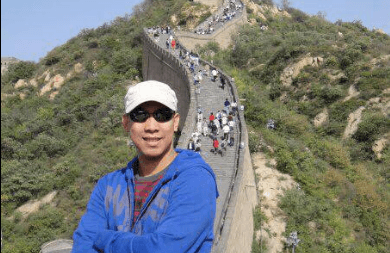SUMMARY
This is AI generated summarization, which may have errors. For context, always refer to the full article.

MANILA, Philippines – In 2012, when the Scarborough Shoal standoff heightened tensions between the Philippines and China, overseas Filipino worker (OFW) Arius Saniel would tell people in his host country that he was from Thailand, Malaysia, or some other Asian country, except his real homeland.
“I may need to do the same thing again,” Saniel, now on his 12th year in China, said in an interview with Rappler.
On Tuesday, July 12, an arbitral tribunal in the Permanent Court of Arbitration in The Hague ruled in favor of the Philippines, ending a 3-year legal battle initiated by the Aquino administration.
But the battle is far from over, as China has stood firm that it will not accept the ruling.
While the Philippines is in a celebratory mood over the historic decision, OFWs in China are starting to fear for their future. (READ: Filipinos tough it out in China)
Fear
Arius has mixed feelings about the ruling. He’s happy the Philippines won, but he also fears its repercussions for Filipinos living in China.
First, he fears a tightening of visa requirements for Filipinos. Living in China for more than a decade, he has witnessed how these requirements, specific to Filipinos, have changed since the dispute started to simmer.
“It was really easy before, but eventually, the requirements started changing almost every year,” he said. “Sinabihan ako ng agency ko na (My agency told me that), ‘We’re not sure if you will have the requirements next year.’” His co-workers who were from other countries, he said, were not told the same.
Another scenario he fears is the rise of ultra-nationalist sentiment in China. He cites the case in 2012 when there were rampant anti-Japanese protests in China during the Diaoyu (Senkaku) Islands dispute.
To be safe, he refrains from discussing political issues in public and stays at home as much as he can.
According to him, most of his Chinese co-workers believe what the Chinese media tell them – that the South China Sea belongs to them, and that the arbitration proceedings are null and void. (READ: ‘Null and void’: Chinese media slam West Philippine Sea ruling’)
Asked what he hopes the government would do next, he answered, “Negotiate with China.”
For him, the best course of action is to negotiate with China, now that we have the leverage and better bargaining power. This, according to Arius, is the best and most peaceful way we can end the conflict.
Uncertain future
Other OFWs echo Arius’ fears.
Maryann Faburada, who has been in China for almost two years, is also scared of possible hostility towards Filipinos.
“Masaya ako siyempre, pero at the same time, natatakot kasi baka kami pagbalingan (Of course, I’m happy, but at the same time, I’m scared because they might take it out on us),” she said.
Another OFW in China, Eden Bolero, shared that on her way back to Shenzhen via train a day after the ruling, she overheard Chinese people saying that Filipinos are “no good.”
For the rest of her trip, she was hoping that no one would notice that she’s a Filipino. “Ang hirap naman kasi itago, kasi siyempre, ‘yung kulay ko, itsura ko, Filipino talaga eh (It’s hard to hide because, my color, my looks – I’m undeniably Filiipino),” she said.
To be safe, both Maryann and Eden said they are exercising restraint and are refraining from talking about the issue. As much as possible, they try to stay away from public places.
Philippine embassy warns OFWs
Even before the ruling came out, the Philippine embassy in Beijing already advised Filipinos in China to be “careful.”
The embassy reminded Filipinos to take the following precautions:
- Monitor news reports and embassy announcements.
- Avoid gathering to talk about political issues in public.
- Do not join discussions or debates about political issues, especially on social media.
- Bring passports or residence permits at all times.
- Report any threats to the Philippine embassy’s assistance to nationals hotline, + 86 139 1118 0495, or to the Chinese police hotline 110.
“Ang pag-iingat sa inyong personal na seguridad ay mahalaga. Umaasa ang Pasuguan sa inyong kooperasyon at suporta upang maprotektahan ang kapakanan ng lahat ng Pilipino sa Tsina,” the Philippine Embassy said.
(It’s important to look after your personal security. The department is counting on your cooperation and support to protect and ensure the welfare of all Filipinos in China.)
Based on the Commission of Filipinos Overseas’ 2013 stock estimate, there are 29,691 Filipinos in China.
What does the future hold for Filipinos in China? Right now, they’re looking into the unknown. – Rappler.com
Add a comment
How does this make you feel?
There are no comments yet. Add your comment to start the conversation.